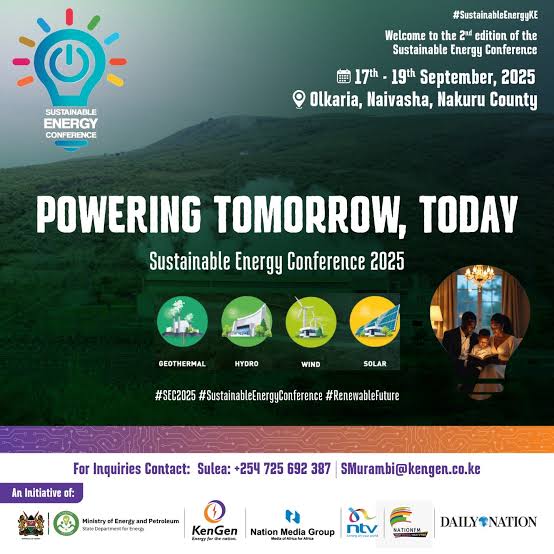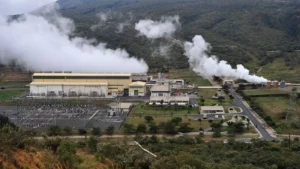The Naivasha Sustainable Energy Conference made me proud to be part of a family of dreamers and doers. Organizers and participants carried themselves not as delegates but as stewards of Kenya’s future. They showed that energy is more than just megawatts; it’s about livelihoods, justice, and dignity. I strongly commend all partners for hosting a gathering that prioritized action over slogans.
The truth is clear. Energy isn’t just about the numbers on a generation chart. It’s about the cost on a factory bill, the light on a child’s desk, the silence of a smoke-free kitchen, and the jobs that stay in Kenya because power is reliable. In Naivasha, the country spoke loudly about turning potential into prosperity.
Consider competitiveness. Kenya cannot succeed in global markets if power remains expensive and unreliable. Delegates suggested aiming for 5-7 US cents per kilowatt-hour for special economic zones. Achieving this would enable factories to expand, boost exports, process food locally, and reduce inflationary pressure. Affordable power is no longer just a technical issue; it is central to our economic future.
Then comes the livelihood test. Energy must serve the boda rider dreaming of charging an e‑bike affordably. It must power the farmer whose solar pump shouldn’t burden them with crippling bills. It must keep a welder’s arc steady in Gikombaand a kinyozi’s clippers buzzing in Kibera. It should also reach the youth in Kisumu who envisions a server farm, and the mother in Turkana who deserves a smoke-free kitchen. When energy policy touches these lives, Kenya advances.
Justice is the heartbeat. Today, Kenyans are paying the price of inefficiency through high tariffs and missed opportunities. Between July and December 2024, the system reduced 511.72 GWh of geothermal power, which is 7.1% of all energy produced during that period. When clean energy is wasted, the public pays twice—first through higher bills, then through the lost chance to create jobs.
There is some progress worth noting. Net metering rules now allow households, schools, and businesses to feed excess power back into the grid. Kenya has revived the High Grand Falls Dam, estimated to cost about KSh 337-340 billion, to increase reliable capacity. KenGen has announced plans to add 1,500 MW of renewable energy and storage within the next decade. These are promising signals, but the real test is how it impacts households’ finances.
To accelerate progress, we need to simplify the system. Energy is often discussed in technical language, but it should instead be communicated clearly with transparent steps. One proposal from Naivasha warrants urgent attention: combining power from numerous small renewable producers under a strong anchor to enable scale, bankable power purchase agreements, and lower tariffs. As Benard Odote of the House of Procurement reminded participants, a trusted aggregator like KenGen can unite scattered projects into a pipeline that financiers will support at scale.
Let us measure what matters. Publish a timeline linking every project and policy to two outcomes: lower tariffs for industry and households, and greater reliability across all counties. Track progress quarterly so citizens can see the curve bending in a downward direction. That is how policy becomes prosperity.
The same clarity should guide green hydrogen. Kenya should lead, but the first beneficiaries must be Kenyan workers and families. Green for Life teaches that big systems only matter when they serve the individual. A single megawatt is a miracle when it powers an incubator, lights a homework desk, or keeps vaccines cold in a dispensary. That is the energy future we owe our children.
My charge is simple. Treat energy as the currency of dignity. Remove red tape. Empower aggregation. Honor net metering. Build the grid that unlocks nighttime demand and reduces waste. Pay communities fairly. Celebrate every dollar saved on a bill as a victory for industry, health, and hope. Until every Kenyan can afford clean, reliable power, our transition remains incomplete.
Think green, act green!



